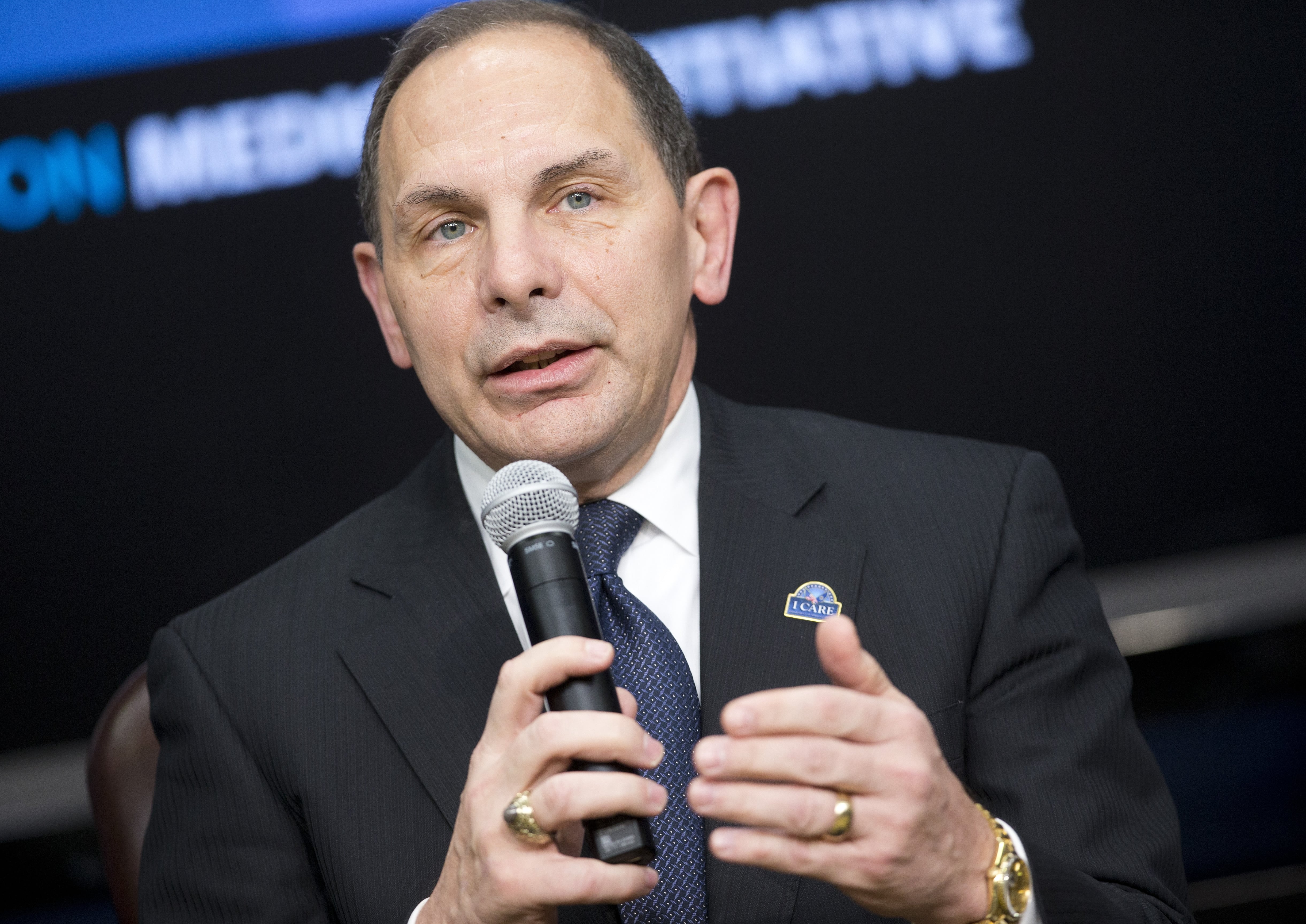A blue ribbon panel crafting recommendations to Congress on the Veterans Affairs health system heard Monday from the department's top leaders, who said reforms underway at the department will improve many aspects of patient care by year's end.
VA Secretary Bob McDonald and Deputy Secretary Sloan Gibson addressed the Commission on Care during an open meeting in Washington, D.C., to explain the department's ongoing reform effort, known as MyVA, which was created to fix internal issues as well as problems highly visible to veterans, such as the benefits appeals backlog, Internet platform problems and the Veterans Choice medical program.
McDonald said MyVA is transforming the Veterans Health Administration, where changes have included new training for employees, increased hiring, one-day stand-downs to focus appointment wait times and patient care, and adding evening and Saturday hours to accommodate patients and increase appointments.
The changes have led to VA completing 97 percent of appointments within 30 days of the date a veteran wanted for an appointment, McDonald said.
Other reform measures require Congressional authorization, however, and getting permission for those, including funding flexibility and consolidating numerous community care programs, has not been easy, he added.
"We can change the system if we get the legislation we need … but getting someone [in Congress] to work on the future has been difficult," McDonald said.
A veterans omnibus bill is expected any day from the Senate Veterans' Affairs Committee. The bill is likely to make changes to accountability rules for senior VA employees, provide additional support for caregivers and address problems in the Veterans Choice program.
The Commission on Care is a 14-member panel appointed by Congress and President Obama to draft recommendations for Congress on the future of the veterans health system..
Before their March meeting, the commissioners' lengthy and often tedious analysis of veterans health services largely went unnoticed outside those whose jobs it is to follow their deliberations, like VA employees and veterans service organizations.
But on March 23, commissioners discussed a report called a strawman, generated by some commissioners, that asked whether closing VA facilities gradually and moving veterans to civilian care paid by VA was a viable option.
The strawman generated a huge backlash from veterans service organizations that favor maintaining VA medical facilities to provide care for veterans and was a hot topic at Monday's meeting.
"If you are going to eliminate the functionalities of the VA, you actually are reducing choice, not adding choice," Bill Rausch, executive director of Got Your 6, told commission members.
"What has not been clear to me has been how much consideration or discussion there have been to what's taking place in MyVa and other community care," said retired Navy Cmdr. Rene Campos, with the Military Officers Association of America
Commissioner Darin Selnick said the strawman authors were not advocating for elimination of all VA medical facilities. Instead, they were exploring what could happen to VA hospitals if the percentage of veterans who use community care goes from the current 25 percent of all VA health care to more than 50 percent.
"The strawman wasn't intended for external use. It was designed to start the process of exploring these trends, play devil's advocate," Selnick said.
The commission was created by the 2014 VA Access, Choice and Accountability Act. Commissioners were appointed by members of Congress and the president. Eleven of 15 commissioners are veterans, and six of the seven commissioners who drafted the strawman are former service members.
Gibson updated commissioners on the current state of VA health care, stressing that the VA excels every day treating veterans.
"Clearly there are some things we have to do better, but there is a vast body of excellent work we do every single day and these are part of the picture. The risk we run is when this these don't get portrayed in context and veterans look at this small fringe, small picture, and say they don't want to go to VA, but this is an uninformed, misinformed conclusion," Gibson said.
McDonald said that if he could make any recommendation, he'd like the commission to suggest making the head of VA a permanent position. He said that with a budget akin to a "Fortune 6" company, VA should have a leader who could stay longer than four or eight years.
"Whether it's a CEO or a secretary, if I were you, I would recommend having a competitive search process, finding someone who wants the job and filling it that way," he said.
The commission is expected to deliver its recommendations to Congress by June.
Patricia Kime covers military and veterans health care and medicine for Military Times. She can be reached at pkime@militarytimes.com.
Patricia Kime is a senior writer covering military and veterans health care, medicine and personnel issues.




